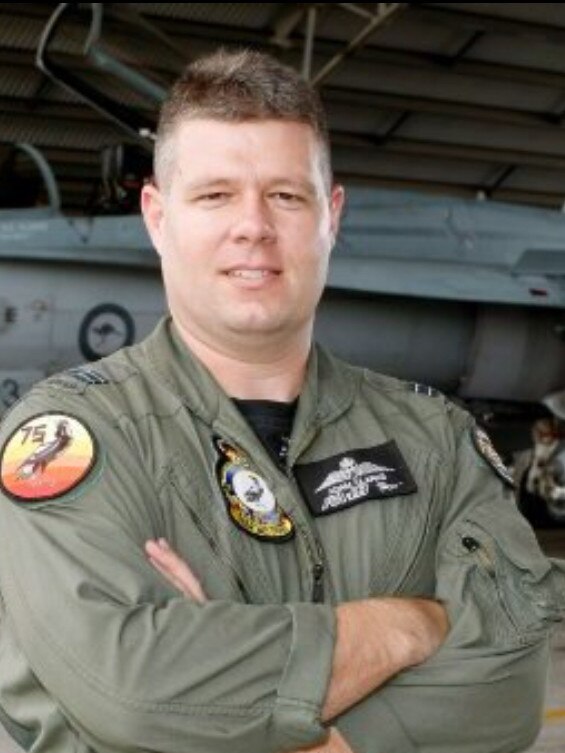Meet the top gun CASA says is too good to train new pilots
An ex-RAAF flight instructor has been refused permission to train pilots in Australia because it would be like allowing a maths professor to teach primary school kids, a tribunal has found.
A former Australian Defence Force top gun has been refused a flight instructor rating by the Civil Aviation Safety Authority on the basis he had the experience but not the qualifications.
Former Royal Australian Air Force squadron leader Adam Clarke challenged the decision in the Administrative Appeals Tribunal, but was unsuccessful.
In his judgment, AAT deputy president Stephen Boyle said there was much evidence to attest to Mr Clarke’s expertise as a highly skilled and trained ADF pilot.
“It may also be that because of Mr Clarke’s vast experience and training he would be able to discharge the functions associated with the authorisations he seeks,” Mr Boyle wrote.
“However that is not the enquiry directed by CASA’s regulation. That enquiry is as to the equivalence of the qualification granted by the ADF.”
In his 26 years in the RAAF, Mr Clarke flew F/A-18 hornets and instructed other pilots on the aircraft. He also worked in the 2 Flying Training School (2FTS) as a Pilatus PC-9/A instructor, and provided remedial instruction for students that required additional help.
More recently Mr Clarke worked in Saudi Arabia as an instructor on F-15SA fighter jets, and throughout his career amassed close to 5000 hours of flying time.

The tribunal heard Mr Clarke’s flight training experience was “at least equivalent to the civil standard because the platforms on which he instructed were more complex with higher performance”.
“In-flight instruction is extremely important, but it is improved and focused by pre-flight tutorials, mass briefs, before flight briefs, and most importantly debriefs,” submissions for Mr Clarke said.
“These disciplines are a real strength of RAAF flying and particularly fighter flying. This allows significant student improvement and progression in a healthy learning environment.”
But CASA reasoned that as an ADF instructor, Mr Clarke trained pilots in more complex aircraft than the light recreational aircraft used by flight training schools.
“It does not matter how experienced the applicant is,” CASA’s submissions to the tribunal said.
“If he has not received an equivalent flight crew qualification to the endorsements that he is now seeking then he is not entitled to the endorsement (under CASA regulations)”.

Mr Boyle concluded that to grant Mr Clarke, of Perth, the civilian endorsements he sought would be akin to allowing “a professor of mathematics to teach arithmetic to primary school children”.
“The professor would certainly have the technical knowledge of the subject matter, mathematics, but may be lacking the training or experience in teaching those with effectively no knowledge of mathematics,” Mr Boyle wrote.
“While (Mr Clarke) has instructed at 2FTS, those he was instructing already had flight training.”
He upheld CASA’s original decision in the matter, finding the ADF qualification was not equivalent to that required by the regulator.
Mr Clarke’s solicitor Joseph Wheeler, from the International Aerospace Law and Policy Group, said his client was considering his appeal options.
“Australia is privileged to have a significant cadre of highly qualified, talented and decorated ex-defence force pilots, who after concluding their military careers set their sights upon civilian aviation,” Mr Wheeler said.
“Their qualifications and experience are globally held in very high regard. Australian flying students could only benefit from lower barriers for ex-defence pilots in this regard as diversity of aviation experience is a proverbial pearl of aviation wisdom they could benefit from.”
A CASA spokesman said they met regularly with Defence “to identify opportunities to align our regulatory arrangements where appropriate”.







To join the conversation, please log in. Don't have an account? Register
Join the conversation, you are commenting as Logout